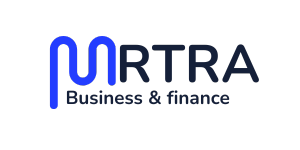Find the Cheapest Variable Rate Mortgage

Finding the cheapest variable rate mortgage can seem hard. But we’re here to help you find the best home loan rates. We’ll share tips and insights to guide you. With our help, you can save money on your mortgage and own your dream home.
Key Takeaways
- Understanding what a variable rate mortgage is can help us make informed decisions.
- Comparing various lenders allows us to find the most competitive rates available.
- Factors like credit scores play a crucial role in determining our mortgage rates.
- Negotiating with lenders might yield better terms on our loans.
- Staying updated on economic changes can help us anticipate rate fluctuations.
- Using online comparison tools simplifies the search for the lowest rates.
Understanding Variable Rate Mortgages
We’re diving into variable rate mortgages, which are unique in the market. These loans, also known as adjustable-rate mortgages (ARMs), have rates that change with the market.
What is a Variable Rate Mortgage?
A variable-rate mortgage has an interest rate that changes over time. This change is based on an index. So, you might start with a low rate, but it could go up as the economy changes. It’s key to understand these loans if you’re thinking about buying a home.
How Variable Rates Can Change Over Time
The cost of a variable rate mortgage can shift due to rate changes. Lenders set rates based on things like the Federal Reserve’s decisions and inflation. Rates usually change at set times, affecting your monthly payments. Knowing this helps predict your mortgage costs over time.
| Feature | Variable Rate Mortgage | Fixed Rate Mortgage |
|---|---|---|
| Interest Rate | May change periodically | Remains constant |
| Initial Rate | Often lower than fixed | Higher initially |
| Payment Structure | May vary over time | Consistent payments |
| Employment of Index | Yes, tied to an index | No |
| Risk | Higher due to potential rate increases | Lower; stable budgeting |
Looking at these features helps us decide if a variable rate mortgage fits our financial plans and risk level.
Benefits of Choosing a Variable Rate Mortgage
When looking at mortgage options, we often consider the pros and cons of each. Variable rate mortgages are particularly attractive due to their lower initial interest rates and flexible payment plans. These benefits make them a popular choice for many.
Lower Initial Interest Rates
One key advantage of variable-rate mortgages is their lower initial interest rates. This can save us a lot of money in the early years of the loan. For instance, many lenders offer introductory rates that beat fixed-rate mortgages.
This can mean smaller monthly payments, allowing us to save more or invest elsewhere. As the economy changes, these lower rates can help keep our borrowing costs down.
Flexibility in Payments
Another plus of variable rate mortgages is their flexible payment options. These loans often let us make extra payments or adjust our payments based on our finances. This flexibility helps us deal with income changes or unexpected bills without the strict rules of fixed-rate mortgages.
We can pay off our mortgage faster when we’re financially stable. And we can reduce payments when times are tough. This flexibility is a big advantage.
| Feature | Variable Rate Mortgage | Fixed Rate Mortgage |
|---|---|---|
| Initial Interest Rate | Generally lower | Usually higher |
| Payment Flexibility | Higher flexibility with payments | Fixed payment amounts |
| Potential for Rate Increases | Rate may increase over time | Rate remains constant |
| Long-term stability | Less predictable | More predictable |
How to Compare Mortgage Rates Effectively
When comparing mortgage rates, it’s not just about the interest rates. We need to look at other factors too. This helps us find the best deals for our home purchase.
Looking Beyond the Interest Rate
Interest rates are important for our monthly payments. But, there’s more to consider. We should look at loan types and features too. Key aspects include:
- Loan amount and term length
- Fixed versus adjustable rates
- Discount points for rate reductions
Each of these factors affects our total costs. It’s crucial to understand how they work together with the interest rate.
The Importance of Loan Terms and Fees
Examining loan terms and fees is also key. Lenders might offer good rates but charge more in fees. Important fees to consider are:
- Origination fees
- Closing costs
- Prepayment penalties
By including these fees in our interest rate comparison, we get a clearer picture of borrowing costs. Here’s a table to help compare loan terms and fees:
| Loan Term | Interest Rate | Origination Fee | Estimated Closing Costs |
|---|---|---|---|
| 15 years | 3.00% | 1.0% | $3,000 |
| 30 years | 3.50% | 0.5% | $2,500 |
| 20 years | 3.25% | 1.5% | $3,200 |
By carefully considering all these factors, we make a well-informed choice. This approach helps us find a mortgage that fits our financial goals.
Finding the Cheapest Variable Rate Mortgage
Finding the cheapest variable rate mortgage takes careful research and the right tools. We need to look at different lenders and their deals. This helps us make smart choices that fit our financial goals.
Researching Different Lenders
It’s key to research lenders well when looking for good mortgage deals. The cheapest variable rate mortgages have different terms and rates. Start by checking big banks, credit unions, and online banks.
Make a list of lenders to compare their rates, terms, and fees. This way, we can find the best deal for us.
Using Online Comparison Tools
Online tools make comparing mortgage rates easy. They collect data from many lenders, showing us rates and terms side by side. Just enter some basic info about our finances to find the cheapest rates fast.
This helps us make smart choices and negotiate better with lenders.
| Lender | Variable Rate (%) | APR (%) | Fees ($) |
|---|---|---|---|
| Lender A | 3.25 | 3.55 | 1,000 |
| Lender B | 3.15 | 3.45 | 1,200 |
| Lender C | 3.30 | 3.60 | 800 |
| Lender D | 3.00 | 3.30 | 750 |
In short, by doing thorough research and using online tools, we can find the best variable rate mortgage deals.
The Role of Credit Scores in Mortgage Rates
Our credit scores play a big role in the mortgage rates we get. Lenders use these scores to figure out the risk of lending to us. A better credit score means we might get a lower interest rate, saving us a lot of money over time.
Understanding How Credit Affects Your Rate
When we apply for a mortgage, lenders really look at our credit scores. These scores show how reliable we are with money. Even a small change in our credit score can mean a lot of extra money spent over the loan’s life.
Improving Your Credit Score Before Applying
Before we apply for a mortgage, it’s smart to work on our credit score. Here are some easy ways to do it:
- Check our credit report for any mistakes and fix them.
- Pay down debts to lower our credit use ratio.
- Always make payments on time to build a good payment history.
- Try not to have too many new credit checks, as they can hurt our score.
By doing these things, we can boost our credit score. This can lead to better mortgage rates when we apply. Being proactive not only helps us get approved but also saves us money in the long run.
Fixed vs. Variable Rate Mortgages: Which is Best for You?
Choosing between fixed and variable mortgages is a big decision. It affects our financial health a lot. Each option has mortgage pros and cons that depend on our personal situation.
Pros and Cons of Each Option
Fixed-rate mortgages mean your monthly payments stay the same. This stability is great, especially when the market is changing. But, the initial interest rates might be higher than variable rates.
Variable-rate mortgages often start with lower rates, saving you money on payments. However, these rates can go up, making payments unpredictable. It’s important to think about these financial considerations carefully.
Considerations Based on Financial Situation
Our choice should match our financial goals and current situation. Fixed-rate loans are good for those staying put, offering stable payments. Variable-rate mortgages might be better if you plan to move soon.
Here’s a quick look at mortgage pros and cons for both:
| Mortgage Type | Pros | Cons |
|---|---|---|
| Fixed Rate | Stable monthly paymentsProtection from market fluctuations | Higher initial interest ratesNo flexibility if rates drop |
| Variable Rate | Lower initial ratesPotentially lower overall cost | Uncertainty in payment amountsRisk of rate increases |
Understanding the financial considerations of fixed vs. variable mortgages helps us make a better choice. This choice should fit our financial goals.
How to Lock in a Variable Rate Mortgage
Understanding how to lock in a good interest rate is key for our financial safety. Rate locks help us avoid sudden rate hikes. Locking in a mortgage rate is wise, especially in today’s unpredictable market.
Understanding Rate Locks
Rate locks mean a lender agrees to keep a certain interest rate for a set time, like 30 or 60 days. This is great when rates are expected to go up. It secures our current rate, giving us peace of mind as we finish the mortgage process.
The Right Time to Lock Your Rate
Choosing the right time to lock in a mortgage rate is crucial. We should lock in when rates are likely to rise. Watching inflation, job numbers, and Federal Reserve actions helps us pick the best time. This way, we protect ourselves from market ups and downs.
| Indicator | Description | When to Lock |
|---|---|---|
| Inflation Rate | Higher inflation leads to increased interest rates. | Lock when inflation is projected to rise. |
| Employment Data | Strong job growth can push rates higher. | Lock before positive employment reports. |
| Federal Reserve Actions | Changes in policy directly influence mortgage rates. | Lock after Fed meetings hint at rate hikes. |
By understanding and using rate locks wisely, we can achieve financial stability. This reduces stress during the loan process.
The Impact of Economic Changes on Variable Rate Mortgages
It’s key to understand how economic changes and mortgage rates work together. This is especially true for homeowners looking at variable rate mortgages. We’ll look at how inflation and the Federal Reserve’s actions affect these rates.
How Inflation Can Affect Your Rate
Inflation can really change mortgage rates. When inflation goes up, so do interest rates. This is because lenders need to make up for money’s losing value over time.
People with variable rate mortgages might see their payments change. This makes it hard to plan their finances.
The Federal Reserve’s Influence on Mortgage Rates
The Federal Reserve has a big say in mortgage rates. They adjust the federal funds rate, which affects all kinds of loans. When the Fed changes rates, it often means mortgage rates will change too.
This is important for anyone looking at variable mortgage options. Keeping an eye on the Fed’s moves can help predict changes in our mortgage payments.
Tips for Securing the Lowest Variable Rate Mortgage
Getting the best mortgage rates is possible with the right steps. We can improve our chances by planning well. This includes negotiating with lenders and choosing the right loan type for us.
Negotiating with Lenders
Negotiation is key to getting the best mortgage rates. Here are some tips:
- Research multiple lenders: Getting quotes from different lenders gives us leverage to negotiate better rates.
- Showcase a strong financial profile: A good credit score and stable finances can lead to better offers from lenders.
- Inquire about discounts: Some lenders offer discounts for loyalty or affiliations, so it’s worth asking.
Choosing the Right Type of Loan
Choosing the right loan is crucial for our financial goals. Here are some options to consider:
| Loan Type | Description | Best For |
|---|---|---|
| Adjustable-Rate Mortgage (ARM) | Starts with a lower fixed rate that adjusts after a set period | Borrowers who expect rates to remain steady or decline |
| Interest-Only Loan | Requires only interest payments for a specified period before principal payments begin | Those anticipating increased income in the future |
| Hybrid Mortgage | Makes a fixed rate for a predetermined duration, then shifts to an adjustable rate | Borrowers who want the stability of fixed rates initially but anticipate longer-term savings |
By negotiating and choosing wisely, we can get the best variable rate mortgage. These steps not only save us money but also make borrowing easier.
Conclusion
As we look back, we see that knowing what we’re doing is key. We’ve shared important mortgage insights to help us understand our options. This includes flexible payments and the need to do our homework.
To get the best rates, we need to take action. This means comparing lenders, checking our credit scores, and knowing how the economy affects rates. These tips can guide us to save money on our home loans.
In the end, using what we’ve learned is crucial. Whether we’re talking to lenders or choosing a loan, our goal is to get the best deal. By making smart choices, we can secure a better financial future for ourselves.
FAQ
What is the difference between a fixed-rate mortgage and a variable rate mortgage?
A fixed-rate mortgage has a constant interest rate. This means our monthly payments stay the same. On the other hand, a variable rate mortgage’s interest can change. This might mean lower payments at first but less predictability.
How can I find the cheapest variable rate mortgage?
To find the cheapest variable rate mortgage, start by researching different lenders. Use online tools to compare rates. Look at the terms and fees of each option. This way, we can find the best deal for our needs.
How often can variable rates change?
Variable rates can change at set times, usually once a year. These changes are based on the economy and interest rates set by the Federal Reserve.
Why is my credit score important for securing a variable rate mortgage?
Our credit score greatly affects the interest rates we get. A better score means lower rates. This can save us a lot of money over time.
Can I negotiate rates with lenders for a variable rate mortgage?
Yes, we can negotiate rates with lenders. It’s smart to compare offers and present them to get a better deal.
Are there any risks associated with taking a variable rate mortgage?
Yes, variable rate mortgages can have risks. They might start with lower rates but can increase. We need to be sure we can handle these changes.
What should I consider before applying for a variable rate mortgage?
Before applying, think about the market, our finances, and our comfort with rate changes. Knowing the loan details and long-term effects is key to a good decision.
How can I improve my chances of getting the lowest variable rate mortgage?
To get the best rate, improve our credit score and research lenders. Understanding the different loan types helps us find the right one for us.
What is a rate lock, and should I use one?
A rate lock is an agreement to keep a certain rate for a time. It’s good if rates are expected to rise before closing. It helps avoid higher costs later.
How do economic factors influence variable mortgage rates?
Economic factors like inflation and the Federal Reserve’s policies affect rates. Changes in the economy can impact our mortgage payments.




